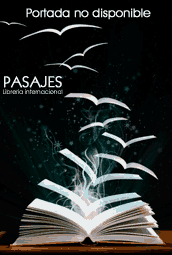Narratives of Community: Womens Short Story Sequences

Editorial Cambridge Scholars Publishing
Fecha de edición diciembre 2009
Idioma inglés
EAN 9781847183835
Libro
Resumen del libro
"Narratives of Community" draws together essays that examine short story sequences by women through the lenses of Sandra Zagarell's theoretical essay, "Narrative of Community." Reading texts from countries around the world, the collection's twenty-two contributors expand scholarship on the genre as they employ diverse theoretical models to consider how female identity is negotiated in community or the roles of women in domestic, social and literary community. Grouped into four sections based on these examinations, the essays demonstrate how Zagarell's theory can provide a point of reference for multiple approaches to women's writing as they read the semiotic systems of community. While "narrative of community" provides an organizing principle behind this collection, these essays offer critical approaches grounded in a wide variety of disciplines.Zagarell contributes the collection's concluding essay, in which she provides a series of reflections on literary and cultural representations of community, on generic categorizations of community, and on regionalism and narrative of community as she returns to theoretical ground she first broke almost twenty years ago.
Overall, these essays bring their contributors and readers into a community engaged with a narrative genre that inspires and affords a rich and growing tradition of scholarship.'With "Narratives of Community", editor Roxanne Harde offers a wealth of critical essays on a wide variety of women's linked series of short stories, essays that can be seen overall to explore the genre as a kind of meeting house of fictional form and meaning for an inclusive sororal community. The book itself joins a growing critical community of monographs and essay collections that have been critically documenting the rise of the modern genre of the story cycle to a place second only to the novel. But more than simply joining this critical venture, "Narratives of Community" makes a major contribution to studies in the short story, feminist theory, women's studies, and genre theory.
Its introduction and essays should prove of enduring interest to scholars and critics in these fields, as well as continue highly useful in the undergraduate and graduate classrooms'. - Gerald Lynch, University of OttawaThe introduction, by Prof. Harde, and the 20 essays in the book dialogue with Sandra Zagarell's proposed paradigm "narratives of community", which other scholars have called "short story cycles" or "story sequences".
Zagarell's proposal organically blends a generic model with a thematic concern to explain how women writing community often turn to a particular narrative style that itself supports the literary creation of that community. Harde and the volume contributors appropriate this brilliant and engaging proposal in the context of other crucial discussions of the genre - notably Forest Ingram's germinal study, J. Gerald Kennedy's work, and those by Robert Luscher, Maggie Dunn and Anne Morris, James Nagel, Gerald Lynch and (I'm honored to note), my own study on Asian American short story cycles - to expand the range of the critical discussion on the form.
The quality and diversity of the essays remind us that there is still much work that can be done in the area of genre studies.The volume emphasizes an important caveat to one vital misconception: that although writers like James Joyce or Sherwood Anderson are thought to be the precursors or, even, "inventors" of the form, women's sequences, by Sara Orne Jewett and Elizabeth Gaskell, among others, actually predate the work of the male writers. This fact suggests that the development of the form as a genre that attends to specific perspectives or creative formulations of and by women needs to be considered in depth. The temporal scope of the volume is therefore a vital contribution to scholarship on the form, as is the diversity of the writers analyzed.Indeed, the examination of narratives by writers from different countries and that focus on characters from different time periods, racial, religious, or ethnic communities, and social class impels a multilayered reading of the texts that inevitably promotes a nuanced understanding of the project of each of the writers, a project that connects issues of individuality and community in varied and often surprising ways.
The essays thus critically explore the notion of community in its myriad associations with the individual and as a crucial site not only for women's action upon the world but also for her creative endeavors.'The essays in the volume revisit familiar texts - Naylor's "The Women of Brewster Place", Cisneros' "The House on Mango Street", Kingston's "The Woman Warrior", Welty's "The Golden Apples", Munro's "The Lives of Girls and Women", among others - but offer new perspectives on the way form interacts with issues of women's communities and women creating community in these works. Significantly, it also offers readings on texts that have not been analyzed in detail from this perspective - Gaskell's Cranford or Woolf's A Haunted House, for example - thus contributing to a continuing conversation about the ways women write. The juxtaposition of the familiar and the new expand the paradigms of current criticism not only on the story cycle but also on women's writing in general.' - Rocio G.
Davis.







